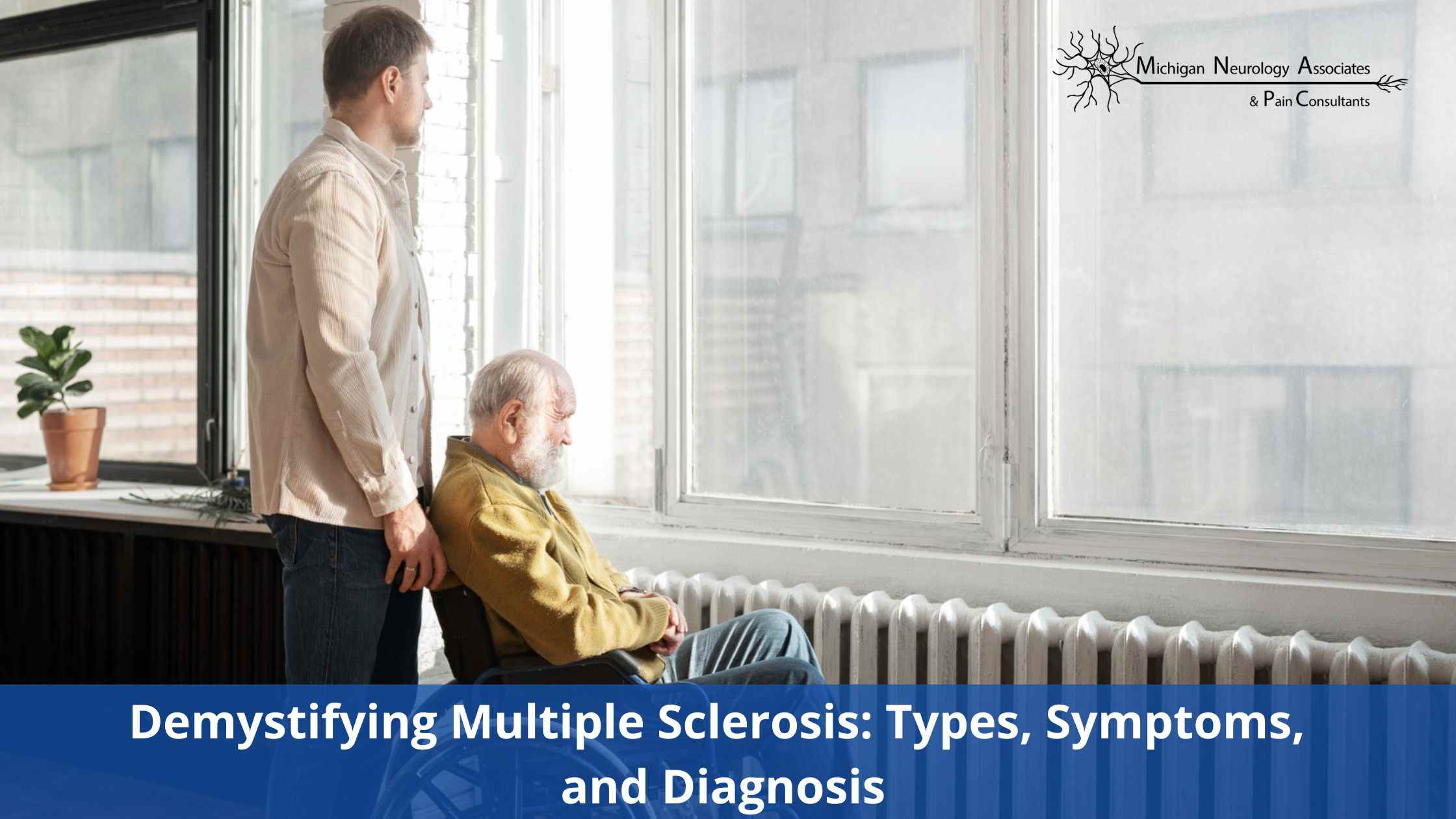



Multiple sclerosis (MS) is a chronic and potentially disabling autoimmune disease that affects the central nervous system, particularly the brain and spinal cord. In MS, the body's immune system mistakenly attacks the protective myelin sheath around nerve fibers, leading to neurological symptoms. These can include fatigue, weakness, numbness, vision problems, and difficulties with coordination and balance.
The significance of MS lies in its prevalence and the impact it has on individuals and society. It is one of the most common neurological disorders, affecting millions of people worldwide before the age of 40 years old. MS can significantly reduce a person's quality of life and be financially and emotionally burdensome due to the need for the ongoing medical care that the increasing disease burden requires.
There are four (4) different patterns of multiple sclerosis (MS), each with its own distinct characteristics. The main types of MS include:
It is the most common form of MS, characterized by clearly defined relapse or flare-ups of symptoms followed by periods of partial or complete recovery. Between relapses, there may be no apparent disease progression.
In this type, individuals with RRMS eventually transition to a progressive phase, where there is a steady worsening of symptoms and disability over time, with or without a definite relapse.
Unlike RRMS, PPMS is characterized by a gradual and steady progression of symptoms from the onset, without distinct relapses or remissions. This type is less common but tends to cause more disability overall.
This is a rare form of MS characterized by a steady progression from the beginning, along with occasional relapses and periods of remission. It's important to note that MS is a highly individualized disease, and the progression and symptoms can vary significantly from person to person.
Its symptoms can differ significantly among individuals and even within the same person over time. This variability is due to the complex nature of MS, which involves the immune system attacking various parts of the central nervous system (CNS).
It's important to note that MS is a highly variable condition, and the symptoms and severity can differ among individuals. It's recommended to consult with a healthcare professional for a proper diagnosis and personalized information regarding the effects of MS on the body.
A diagnosis of MS can have emotional and psychological impacts. Seeking support from friends, family, support groups, or mental health professionals can help cope with the emotional challenges.
Multiple sclerosis (MS) has no known cure, but several medications and other treatments can help manage the disease and lessen some symptoms.
MS can occur at any age. However, it commonly occurs between the ages of 20 and 40. However, both young and old persons may be affected.
Several available treatments aim to manage symptoms, slow down the progression of the disease, and improve the quality of life for individuals with MS. Here are some of the commonly used treatments:
These medications are designed to modify the immune system's response and reduce the frequency and severity of MS relapses. DMTs can help slow down the progression of the disease and reduce the number of lesions in the brain and spinal cord.
Actual steroid treatment to address and shorten acute MS attacks
Various medications and therapies are available to manage specific symptoms of MS, such as muscle spasms, fatigue, pain, bladder and bowel dysfunction, and depression. Physical therapy, occupational therapy, and speech therapy can also be beneficial in managing MS symptoms.
These programs focus on improving mobility, strength, coordination, and overall functioning. They may include physical, occupational, and speech therapy, as well as assistive devices and adaptive techniques.
Maintaining a healthy lifestyle can be beneficial. Regular exercise, a balanced diet, stress management techniques, and adequate rest can help manage symptoms and overall well-being.
As a result, it's essential to see a doctor once you experience any multiple sclerosis symptoms. A definitive diagnosis requires a physical exam and appropriate history in conjunction with a brain MRI; abnormal CSF and evoked potential results. If you've been diagnosed with MS, it's necessary to have regular check-ups with your treating Neurologist. They can monitor your condition, assess treatment effectiveness, and make required adjustments.
At Michigan Neurology Associates & Pain Consultants, we work with you to create the most effective treatment regimen and effective symptom management for your multiple sclerosis type. Schedule an appointment with us today for prompt and long term treatment strategies.